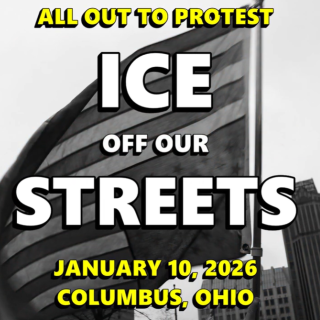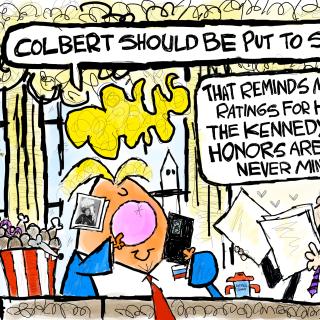This year marks the fiftieth anniversary of the assassinations of the Rev. Dr. Martin Luther, King, Jr. and Senator Robert F. Kennedy. Already a surfeit of books about the two men are in the stores. Indeed, books about the sixties in general and 1968 in particular are now in high demand.
Kennedy and King looks at the herculean battle over civil rights through two of its larger-than-life protagonists: President John F. Kennedy, and the Rev. Dr. Martin Luther King, Jr. The junior senator from Massachusetts was working double time to be chosen as the Democratic nominee in the 1960 presidential election. Wealthy, handsome and charismatic, Kennedy was only one of many Democrats interested in running that year. His record in Congress was thin, and he was seen as a dilettante and playboy. Liberals such as former first lady Eleanor Roosevelt found him wanting; his pragmatism generally won out over idealism. And while not a dyed-in-the-wool racist, Kennedy was like millions of northern, urban whites who seemed to be uninterested in and untouched by northern de facto racism.
King, the highly educated, urbane Baptist preacher, was struggling to get back his sea legs. The Montgomery bus boycott brought international attention, financial backing, and excitement about the new possibilities of non-violent direct action and its impact on racism. But by 1960, the bus boycott was four years old news, and Dr. King and the Southern Christian Leadership Conference (SCLC), the organization of which he was head, were struggling to remain relevant. Furthermore, college students had shifted the momentum in the movement with the freedom rides and sit-ins at segregated restaurants.
The men were finally able to meet in secret in 1960 at the Kennedy apartment in New York, and they circled each other like wary sumo wrestlers. Kennedy talked about how the freedom movement could be helped along with bold and strong action from the executive branch, and stated that he was ready to commit to that strategy, implying that President Eisenhower had not. While King did not deny Kennedy’s intellectual understanding of racism and prejudice, he felt that the Senator did not have the emotional or moral commitment to the cause. Neither man was inordinately impressed with the other.
Throughout the campaign, JFK worked hard to get King to support him; King worked equally hard from doing so. He was troubled by JFK’s vote against the Civil Rights Acts of 1957 and 1960.King was especially worried about Kennedy’s open courtship of white racist elected officials from the south during the presidential campaign. (Despite Lyndon Johnson’s presence on the ticket, Kennedy was only able to win one southern state, Alabama.) Like most blacks, King was leaning toward the Republican candidate, Vice President, Richard Nixon. Sports icon and civil rights activist Jackie Robinson had early on criticized JFK’s commitment to civil rights and openly supported Nixon, even taking a leave of absence from his executive position at Chock Full of Nuts to work on the vice president’s campaign.
And then Dr. King was arrested in Atlanta where he had joined students in a sit-in against segregated restaurants. At four o’clock the next morning, King was rousted from his sleep, shackled, removed from the jail, and transferred to the maximum security state prison in Reidsville. At first no one knew about King’s transfer, not even his wife, Coretta, who was six months pregnant with their third child. Frantic, she contacted members of the Kennedy campaign team, who passed the news to the candidate. JFK called the governor of Georgia, Ernest Vandiver, to see if King could be released; he also contacted Mrs. King to show his concern. Robert F. Kennedy, the candidate’s brother and campaign manager, contacted the judge. The Nixon camp, despite pleas from Jackie Robinson, had no comment. (In fairness to Nixon, a lawyer, he knew that legal ethics considered it improper to contact a judge about a particular case.)
The efforts of the Kennedy brothers brought about King’s release. His grateful father, Martin Luther King, Jr, known as Daddy King, had planned to vote against JFK because he was Catholic. (Kennedy reportedly said, “Imagine Martin Luther King having a bigot for a father.”) But upon his sons’s release from prison, he promised to deliver the black vote to Senator Kennedy. Many political experts think that the black vote, especially in northern urban areas, helped JFK squeak by Nixon and capture the presidency.
Once in office, however, Kennedy put African Americans and their concerns on the back burner. The strong executive action candidate Kennedy promised did not materialize. Indeed, in some ways his administration was an impediment to the freedom movement. (See The Bystander: John F. Kennedy and the Struggle for Black Equality, by Nick Bryant.) In the south, he appointed to the federal bench avowed racist white judges who were tremendously hostile to civil rights and African Americans. The Federal Bureau of Investigation, was directed by J. Edgar Hoover, a racist, homophobic man who amassed files on those he hated, including Martin Luther King, Jr. and some of his associates, such as Bayard Rustin. His agents typically watched from a distance and took notes as demonstrators were harassed, beaten, and arrested, all the while claiming its hands were tied because it had no authority in these kinds of situations. But since Hoover’s dossier on the Kennedy family was full of salacious details about the president’s sexual exploits, the brothers could push Hoover only so far.
The Kennedy administration did respond to some civil rights issues on an ad hoc basis–e.g., they sent federal marshals to protect blacks who were trapped in a church while a mob of hostile whites bayed for their scalps–but until the spring of 1963, there was no coherent policy on racial equality. The president saw civil rights as an irritant and a foreign policy issue; he was mainly concerned with how racial discord in America looked abroad, and it wasn’t pretty. He knew that America could have no moral authority in the worldwide fight against Communism at the same time the country was denying rights to black citizens. It didn’t take long for the president to assign his brother, Robert, the attorney general, to deal with civil rights. Because the attorney general’s first priority was protecting his brother and his brother’s legacy, dealing with Robert Kennedy was only marginally better. King was right to have trusted his instincts.
As the movement accelerated and King grew in influence both in the United States and abroad, his criticisms of politicians and government officials, including the president, became more strident. His patience with the platitudes and pussyfooting of politicians had worn thin. He peppered JFK with letters and telegrams, and he demanded that Kennedy see the lack racial justice in America as a moral issue. It wasn’t until his administration had successfully ensured the admission of Vivian Malone and James Hood to the University of Alabama in June of 1963 that JFK was ready to publicly address the morality of racial prejudice in the U. S.
Unlike JFK, however, King never wavered in his commitment to racial equality and the role the federal government needed to play. He would not be charmed by JFK nor awestruck by the majesty of his office. Kennedy and King shows how the small gains in civil rights for black Americans that were won during the Kennedy administration are more the work of courageous black Americans and King rather than the Kennedy administration. Indeed, King kept the pressure on the president and America, and in the end, neither was able to look away.
I studied this era and the freedom movement a great deal on my way to a doctoral degree, and I found very little new about either man in Kennedy and King. Readers who view history as a struggle between or among great men, however, will be very much impressed by this carefully researched and highly readable book. Kennedy and King is briskly paced and compelling. It is also poignant because we know how the story ended.
Read it and weep–for what was, what might have been, and what currently is.
Dr. Marilyn K. Howard earned a BA in criminal Justice from Ohio Dominican College; an MA in political science from The Ohio State University (Thesis: The Entrance of Black Voters Into the Mississippi Electorate) and her PhD in American history from The Ohio State University (Dissertation: Black Lynching in the Promised Land: Mob Violence in Ohio 1876 - 1916). She is an associate professor in the Department of Humanities at Columbus State Community College. Dr. Howard has twice received the Distinguished Teaching Award from Columbus State, and was twice recognized as an outstanding staff member by the National Institute for Staff and Organizational Development. She was also named a top educator by Ohio magazine. Dr. Howard has served as an editor of the Southern Historian, a freelance book critic for the Columbus Dispatch and Ohioana Library. She has published essays in a number of anthologies, including the Encyclopedia of Racial Violence in America and the Encyclopedia of Jim Crow. She continues to conduct research on the lynching of black men by white mobs in Ohio.



